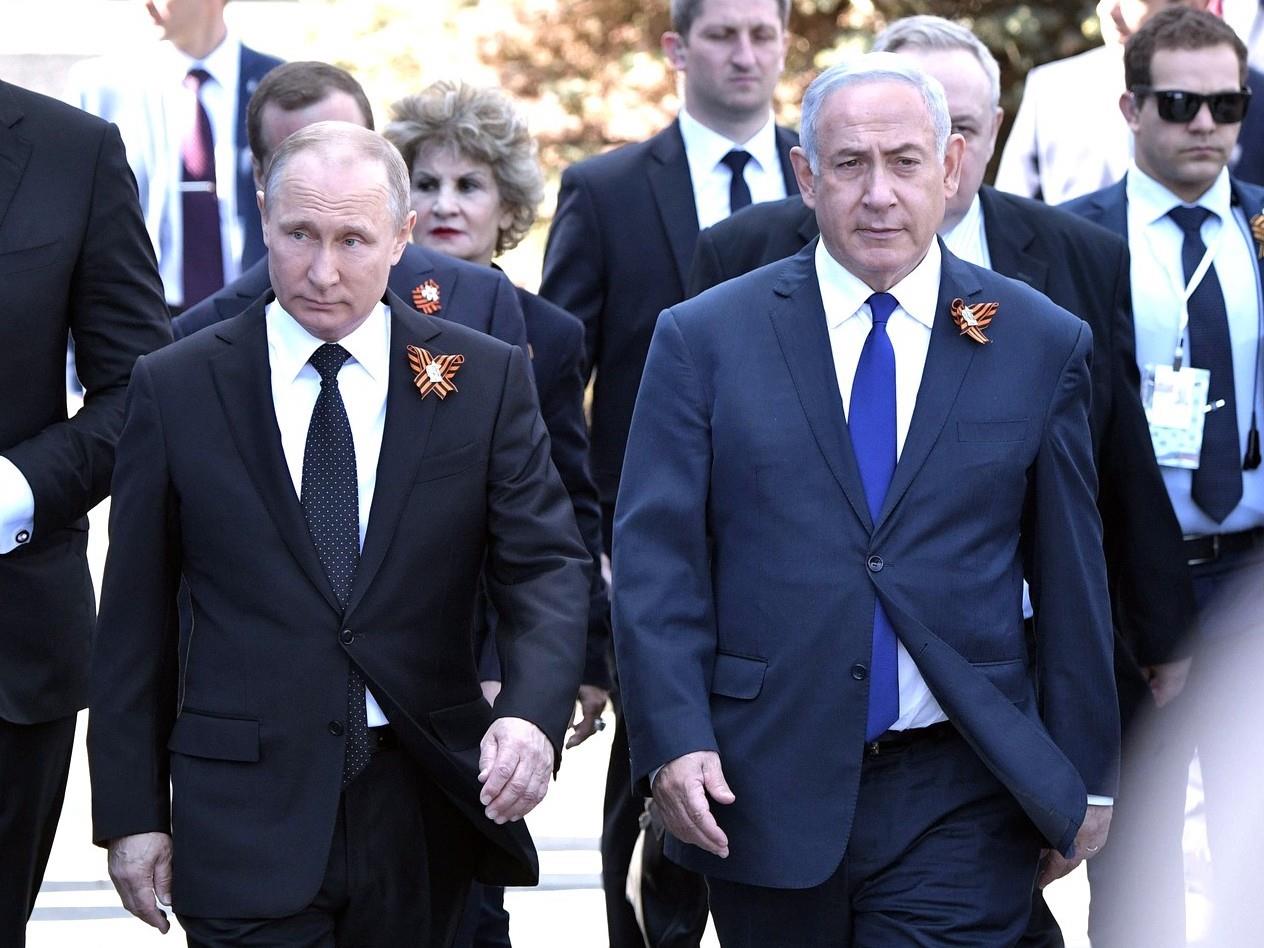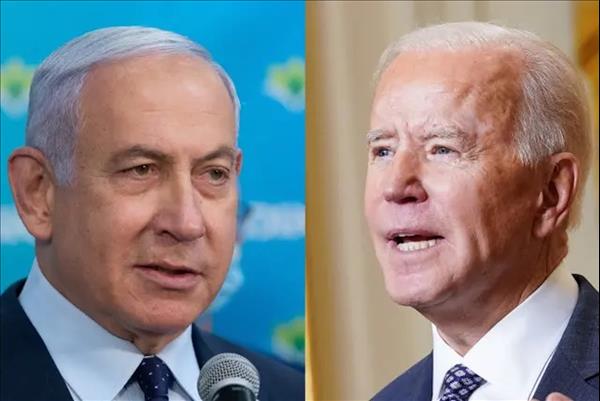(MENAFN- Asia Times) NEW YORK – Israelis didn't vote for Benjamin Netanyahu on November 1 as much as they voted against the Biden administration.
Caretaker Prime Minister Yair Lapid gambled his career on close relations with Washington – denouncing Russia for“” six weeks into the Ukraine war and accepting Washington's instructions on matters ranging from tactical directives for the operations of Israeli security forces in the West Bank to negotiations with Lebanon.
Netanyahu, who previously served as prime minister for 15 years, is a thick-skinned nationalist who maintained excellent relations with Vladimir Putin and cordial relations with China while remaining in the good graces of the Trump administration most of the time.
With nearly 90% of votes counted at 17:00 GMT, Netanyahu's right-wing bloc appears to have won 65 of the Israeli Knesset's seats, the strongest majority of any government in years. The ruling coalition will include Israel's two Haredi (ultra-Orthodox) parties as well as the Religious Zionism party.
Netanyahu's own Likud party polled 32% of the popular vote, versus 24% for Lapid's Yesh Atid. The Religious Zionism Party came in third at 14%.
Two of Israel's hard-left parties, the peace-at-any-price Meretz Party and the Arab party Balad, haven't met the 3.25% threshold for representation and will drop out of the Knesset.
Israel's unwieldy proportional representation system produces complex coalitions. Four previous national elections since 2019 produced razor-thin majorities, as voters split evenly between the traditional right allied to religious parties and the center-left coalition headed by Lapid.
The last government left Lapid and former Netanyahu ally Naftali Bennett as“alternate prime ministers,” an odd-couple arrangement between two political enemies. Bennett will quit the government after this election.
What made this national election different from the last four is Israeli voters' antipathy to Washington's arm-twisting.
Netanyahu returned to office despite ongoing trials for alleged corruption, on charges that his supporters claim were fabricated by political enemies in Israel's Justice Ministry. For years, he loomed so large in Israeli politics that he“blotted out the sun.”
One of his strongest assets is a longstanding personal friendship with Putin, who he described in a recent book as“smart, sophisticated and focused on one goal – returning Russia to its historical greatness.”

Putin and Netanyahu at the Moscow Victory Parade, 2018. Photo: Wikimedia Commons.
Lapid repeatedly denounced Russia and provided“non-lethal” aid to Ukraine. Meanwhile, Netanyahu not only did not criticize Russia but he scolded the Lapid government for its involvement in the crisis.
A week before Israel's election, Ukrainian Foreign Minister blasted Netanyahu, telling Axios,“I will not name anyone, but let me say this: If anyone in the Israeli political elite believes that the nicer you are towards Russia the better Russia will treat you, these people are wrong.”
In an October 21 interview with USA Today, Netanyahu offered to mediate the Ukraine conflict. Putin is“guided by his vision of reconstituting a great Russian realm,” he said,“and I hope he's having second thoughts about it. But I don't want to play psychologist. I want to be in the position of being prime minister, getting all the information, then making decisions on what and if we do anything in this conflict beyond what has been done so far.”
Ukraine repeatedly asked Israel to provide its Iron Dome short-range air defense system, a step that the Lapid government refused to take.
Netanyahu spoke about Russia and Ukraine in an with Jewish News Service:
Netanyahu has spoken bluntly about his travails with Democratic administrations in Washington.
In the same Jewish News Service interview, he said,“The American administration has tried to intervene” in Israeli politics,“especially against me. Clinton openly admitted it. And again, under President Obama, the State Department gave hundreds of thousands of dollars to NGOs working openly to topple my government in an election campaign.… I would advise them not to do it. I don't intervene in American elections, they shouldn't intervene in ours. We're a free society”
The Biden administration angered many Israeli voters by imposing an agreement that cedes maritime gas fields claimed by Israel to its northern neighbor Lebanon, which harbors the Iranian-controlled Hezbollah militia. The agreement, signed in late October, accepted virtually all of Lebanon's demands.
“There was no reason to give up all of the disputed maritime areas,” wrote Israeli strategist of the Jerusalem Institute for Strategy and Security.“Israel did not take advantage of many years of American support for a compromise proposal that would have given Israel almost half of the disputed territory. Israeli diplomacy failed to preserve American support for this compromise despite Jerusalem's great efforts to mute the differences with Washington over the nuclear negotiations with Iran.”
Caroline Glick, a prominent Israeli commentator and Netanyahu supporter, wrote on her on October 30 that the“US veto over Israel's foreign and defense prerogatives has since spread to Israel's dealing with Hezbollah and the Palestinians. Under the maritime deal Lapid signed with Hezbollah-controlled Lebanon, Lapid and [Defense Minister Benny] Gantz ceded Israel's territorial waters and sovereign natural resources to the terror state to its north. The terms of the agreement were Hezbollah's terms. And Israel's capitulation was dictated by the Biden administration.”
Glick added:“As for the Palestinians, reports over the past several weeks revealed that the Biden administration is interfering in Israel's military operations in Judea and Samaria down to the company and squad level through its embassy in Jerusalem.”

An Israeli Defense Force unit in Judea and Samaria in a file photo. Photo: Jerusalem Post / Twitter
In addition, Glick wrote:
Washington is pressuring Israel to cut economic ties with China, but most Israelis do not want to become an instrument of America's less-than-effective efforts to contain Beijing.
A January 2022 Pew Survey found that 74% of Israelis polled said that China's international influence is growing, while only 26% of respondents said that the American influence is. The same poll found that 53% of Israelis aged 18 to 29 had a favorable opinion of China.
Israel is a small country and reluctant to make an enemy of a great power whose presence in its neighborhood is growing.
The Israelis are not alone in their anti-Biden resentments. Don't be surprised if what we are seeing is a global“red wave” that began with Italy's September 25 general election and that culminates in a Republican sweep of both Houses of the US Congress on November 8.
Follow David P. Goldman on Twitter at





















Comments
No comment